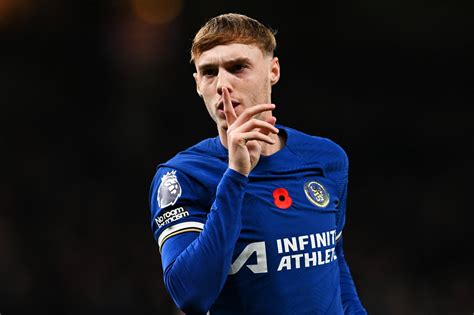Chelsea’s struggles this season have been the subject of intense debate, with goalkeeper Robert Sanchez and forward Nicolas Jackson bearing the brunt of fans’ frustration. However, their issues are not isolated but rather symptomatic of a much deeper problem within the club’s overall approach to squad building. If the club wants to return to the top, significant changes must be made in the summer transfer window.
Sanchez and Jackson: Unfair Scapegoats?
If you ask Chelsea fans about the root of their team’s poor form, many will quickly blame Robert Sanchez. The Spanish goalkeeper has been responsible for several costly errors, which ultimately led to his replacement by Filip Jorgensen. However, beyond the goalkeeping woes, another name often surfaces in discussions about Chelsea’s struggles—Nicolas Jackson.
At the start of the season, Jackson looked like he had adapted well to his role as Chelsea’s primary striker, scoring eight goals in his first 15 Premier League appearances. But his form has since plummeted, netting just once in his last 10 games. Meanwhile, Chelsea’s fortunes have also taken a dip, winning only four of those matches and slipping from fighting for second place to battling for a top-four or top-five finish.
A telling statistic from Opta highlights Chelsea’s inability to capitalize on chances. Since December 4, Cole Palmer has created 32 chances—more than any other player in Europe’s top five leagues. Yet, astonishingly, none of those chances have been converted, despite Palmer’s expected assists figure of 3.96.
Jackson, in particular, has struggled, failing to convert seven of Palmer’s chances—the highest number in the squad. But while it’s easy to point fingers at Jackson and Sanchez, their struggles are emblematic of three larger issues at Chelsea: the club’s flawed recruitment philosophy, the consequences of its decisions, and the staggering financial costs compared to the lack of results.
A Flawed Recruitment Philosophy
Ever since Todd Boehly and Clearlake Capital took over Chelsea, the club has prioritized signing young players on long-term contracts. The idea is that these players will develop, increase in value, and either become key first-team contributors or be sold for a profit.
This approach has made Chelsea the youngest team in the Premier League by a significant margin. In fact, they are the only club in the league that has not given any playing time to a player aged 28 or older. The squad’s “veterans” are Sanchez, Tosin Adarabioyo, and Christopher Nkunku, all of whom are just 27.
While investing in youth is not inherently a bad strategy, Chelsea’s approach has exposed a fundamental flaw: development is not linear. Young players improve at different rates, and assuming they will all grow together at the same pace is unrealistic.
When teams rely too heavily on inexperienced players, they lack the leadership and stability needed to navigate difficult periods. This is especially evident during critical stretches of the season, such as the grueling winter schedule, when experience can make all the difference.
Former Chelsea midfielder Joe Cole pointed this out while analyzing the team’s struggles on TNT Sports earlier this year:
“I think it’s a little bit of inexperience,” Cole said. “This time of the year is always crucial, the Christmas period and December and coming out of it. The weather is not good, the games come thick and fast, and if you’re not at it and not in good form, you can really fall away. If you sprinkle a little bit of experience in that squad, you probably get better results.”

Chelsea’s Overreliance on Cole Palmer
The lack of experienced players has put enormous pressure on young stars like Cole Palmer, who, despite being only 22, has already become Chelsea’s most reliable attacking outlet. While his chance creation and goal-scoring numbers are impressive, teams have now recognized that stopping Palmer severely limits Chelsea’s attacking threat.
Despite Palmer continuing to create chances, his teammates—including Jackson, Jadon Sancho, Noni Madueke, and Marc Guiu—have failed to capitalize. This lack of efficiency in front of goal has cost Chelsea valuable points and made them easier to neutralize.
Similarly, Chelsea’s defense has suffered from costly mistakes, with players making errors that experienced professionals might have avoided. While some young talents, like Moises Caicedo, have stepped up, the overall squad lacks the consistency required to compete at the highest level.
A Billion-Dollar Investment, but No Clear Direction
Perhaps the most glaring issue is that Chelsea has spent an astronomical amount on transfers without building a truly competitive team. Over the past five transfer windows, the club has spent more than €1 billion on new players. Yet, despite this massive investment, Chelsea still lacks a balanced and cohesive squad.
Of the numerous players signed, only Palmer and Caicedo can be considered world-class. A few others show promise, but too many remain unproven, and some have already failed to meet expectations.
When compared to clubs operating with much smaller budgets, Chelsea’s inefficiency in the transfer market becomes even more evident. Many teams in the top half of the Premier League have assembled squads for a fraction of the cost yet are achieving far better results.
Constant Managerial Changes Add to the Chaos
Another issue compounding Chelsea’s struggles is their lack of managerial stability. Since the new ownership took over, they have already gone through four different managers, each with their own tactical philosophy and preferred playing style. This constant upheaval makes it nearly impossible to build a cohesive squad, as players are signed for one manager’s system, only to find themselves struggling to fit into a new one.
This lack of continuity is evident in Chelsea’s current squad, where several players do not seem suited to Mauricio Pochettino’s tactics. A more structured approach to managerial appointments and recruitment is needed to bring long-term stability.
The Summer Window: Make or Break for Chelsea
With the January transfer window passing without significant reinforcements, all eyes are now on the summer. Chelsea must address several key areas, including securing a reliable goalkeeper, strengthening the spine of the team, and adding an experienced forward to provide competition for Jackson.
Andrey Santos, who has impressed in France this season, will return, but one player alone will not be enough to solve Chelsea’s problems. More signings will be required, but the question remains: will Chelsea continue prioritizing potential over proven quality?
Additionally, with Manchester United potentially improving and other top clubs strengthening, Chelsea’s position in the Premier League could become even more precarious. If they do not make the right moves this summer, they risk falling even further behind.
Final Thoughts
Chelsea’s problems run far deeper than the performances of Robert Sanchez and Nicolas Jackson. They are symptoms of a flawed squad-building strategy that has prioritized youth at the expense of balance and experience.
While investing in young talent is a viable approach, it must be complemented by the presence of seasoned professionals who can guide the team through difficult moments. Chelsea’s recruitment strategy must evolve if they want to return to the top.
The upcoming summer transfer window will be a defining moment for the club. The decisions made in the next few months will determine whether Chelsea can turn things around or continue down a path of uncertainty and underachievement.

